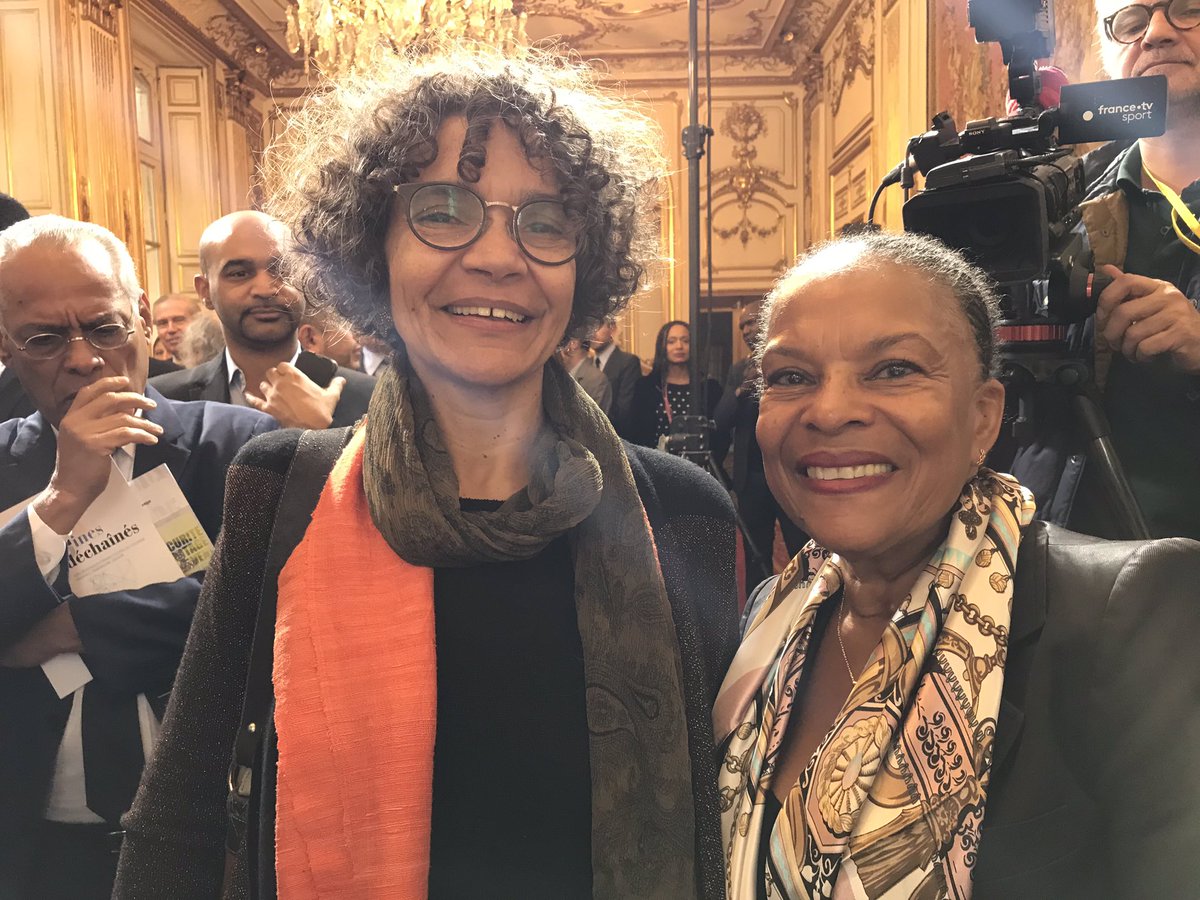The National Day of Remembrance of the Slave Trade, Slavery, and Their Abolitions serves as a reminder of the importance of memory and recognition.
National day of remembrance of the slave trade, slavery, and their abolitions
A Memory made law

In the early 2000s, the Taubira Law, which recognized the transatlantic slave trade and slavery as crimes against humanity, reignited a fiery debate: where do we draw the line between scientific history and activist memory?
On May 10, 2001, the French Parliament officially passed the law initiated by Christiane Taubira. The original name (“Commemorative Day of the Remembrance of Slavery and its Abolition”) was later changed, in 2006, to the National Day of Remembrance of the Slave Trade, Slavery, and Their Abolitions.
Dedicated to “civic reflection on respect for human dignity and the notion of crimes against humanity,” this day addresses all forms of memory: Black, Caribbean, overseas, African. A duty of recognition has become a tool of national cohesion.
Between legitimacy and controversy

Yet since its creation, this official memory has sparked criticism.
Some fear that by turning memory into a legal obligation, the State imposes a single interpretation of history. In 2004, historian Olivier Grenouilleau, a specialist on slavery, published Les Traites négrières: essai d’histoire globale. He argued that the transatlantic slave trade should not be treated in isolation from other forms of slavery. In a 2005 interview, he declared:
“The Muslim slave trade was not driven by racism.”
The statement caused an uproar. Accused of downplaying the Arab-Muslim slave trade compared to the Western one, Grenouilleau was the subject of a complaint for denying crimes against humanity — a case that was ultimately dismissed.
That same year, nineteen historians, including Pierre Vidal-Naquet, launched the petition Liberty for History, denouncing what they saw as a threat to academic freedom. Under the leadership of Pierre Nora, Liberty for History became a collective fighting what they called “the criminalization of the past.”
Republican universalism or denial of discrimination?

In 2023, the magazine Hérodote.net claimed that the Taubira Law “missed the chance to unite the French around their shared history,” reaffirming the doctrine of republican universalism born from the French Revolution:
Liberty, Equality, Fraternity… but without identity distinctions.
Yet this ideology is increasingly criticized. According to political scientist Alain Policar, republican universalism contributes to the “erasure of history” by ignoring the discrimination inherited from colonialism and slavery.
In Transatlantic Dialogue (2021), Djamila Ribeiro and Nadia Yala Kisukidi explore the challenge of celebrating identities without fragmenting society. For Kisukidi, a common national memory is only possible if minority narratives are included. Ribeiro goes further:
“It is the absence of recognition that divides, not its presence.”
Recognition to move forward
In France, social cohesion depends on embracing multiculturalism. For descendants of enslaved or colonized populations, history is not a detail — it is foundational to identity.
To ask those in the Antilles, Guyana, Réunion, or the African diasporas to “move on” would be to ignore the ongoing impact of the slave trade, slavery, and colonialism.
The Gayssot Law (1990) established a precedent by criminalizing Holocaust denial — the denial of crimes against humanity. While originally designed to protect the memory of the Shoah, its principle extends to other major historical crimes.
Amnesty International reminds us that crimes against humanity offend the conscience of all humankind — a moral and legal framework enshrined by the UN in 1948.
Memory as political action
Still, some continue to downplay the moral and historical significance of slavery. In 2008, historian Pierre Nora published an opinion piece in Le Monde, asserting that:
“The concept of crimes against humanity cannot be applied retroactively.”
The comment sparked outrage. Thirty-one public figures, including Serge Klarsfeld and Claude Lanzmann, signed an open letter titled Let’s Not Confuse Everything, reaffirming the necessity of fully acknowledging slavery as a crime against humanity.
In 2017, historian Pierre Serna responded with his own unequivocal piece:
“Slavery was indeed a crime against humanity.”
25 Years of the Taubira law: A new cycle of remembrance

As the 25th anniversary of the law approaches, reflections on its impact are being revived.
Dominique Taffin, director of the Foundation for the Memory of Slavery, emphasizes that the law broke a long silence:
“It allowed for the official recognition of the suffering of overseas populations and influenced education through new school curricula, museums, and memorials.”
Among these initiatives: the Memorial ACTe in Guadeloupe and the National Committee for the Memory and History of Slavery (CNMHE).
Teaching, always and again
May 10 remains a call to continue teaching, recognizing, and passing down memory.
As the public education platform Lumni states:
“We must reconcile our divisions around a shared memory.”
But that memory cannot be genuine if some citizens — descendants of enslaved or colonized peoples — do not see themselves fully included.
Journalist and director Samuel Légitimus puts it this way:
“France’s image is trapped by its own history. We must help it evolve.”
Upcoming milestones — including the memorial scheduled for 2026 and the May 23 Day of Remembrance for the Victims of Slavery — signal a new momentum.
Because memory must not be frozen: it is a living foundation, a lever to envision the future.
Table of Contents
- National Day of Remembrance of the Slave Trade, Slavery, and Their Abolitions
- A Memory Made Law
- Between Legitimacy and Controversy
- Republican Universalism or Denial of Discrimination?
- Recognition to Move Forward
- Memory as Political Action
- 25 Years of the Taubira Law: A New Cycle of Remembrance
- Teaching, Always and Again
